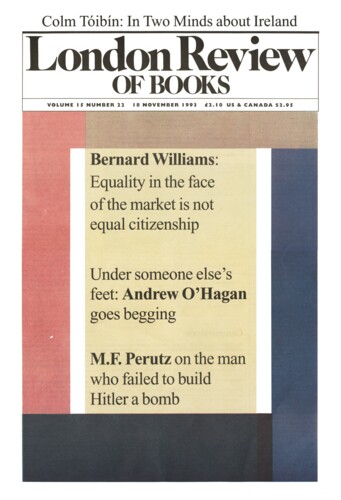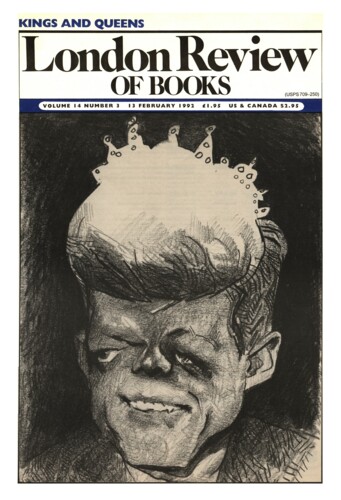Sideshows
Charles Maier, 18 November 1993
With the collapse of Communism and the disorientation of the Marxist Left, a poignant revaluation has overtaken the history of the European Resistance in World War Two. The gradual disappearance of the survivors would in itself have led to a dissipation of the Resistance’s sacred aura; but politics as well as demography is now at work. Of course, the history of the Resistance has always been especially vulnerable: for four decades in Italy it served to legitimate the vision of a Left that could embrace Communists and non-Communists alike; in France it justified the creation of the Gaullist Republic; in Yugoslavia it helped for forty years to hold together a precarious nationhood; in the Soviet bloc it furnished credentials for the Communist Parties that monopolised power after Hitler’s armies had been cleared out. In the early post-war years a source of pride and solace, the Resistance has by now become a troublesome, sometimes tiresome legacy.


